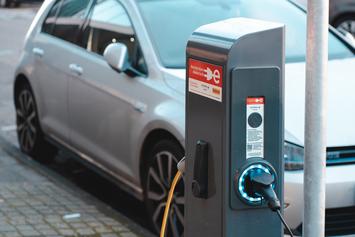
I’ll start this commentary by observing that I am not a climate skeptic. As an environmental scientist/engineer by training, I think climate change is real, but it’s like every other environmental issue: a more-or-less routine engineering challenge, rather than a world-altering disaster justifying the fever-dreams of the radical greens.
I am, however, an EV skeptic—more broadly, I am skeptical that electric vehicles, adopted either voluntarily, or via government mandates (increasingly the norm), will do much of anything to address the risk of climate change or to significantly reduce any other environmental problem that one might point out. In fact, I’m solidly convinced that shifting away from the internal combustion of hydrocarbons to battery-stored electricity (generated from pretty much any source) will likely make environmental problems worse, not better. Along the way, the push to force EVs onto the public will come with a bunch of social injustices that will only compound the environmental challenges that society faces.
A blog post by natural resource investment firm Goehring & Rozencwajg Associates breaks the story down for us (from some proprietary research not available to your humble correspondent). Without getting into the weeds, the question they answer is simple: in a head-to-head comparison, are electric cars likely to produce fewer greenhouse gases per kilometre travelled than a comparable hydrocarbon-powered vehicle?
The short answer is “no.” Why not? As my doctor explains when I ask why my feet don’t work as well as other people’s feet: “It’s about the mass, dude. The mass around your waist, and the extra work your feet have to do to move it around with you.” With electric cars, the problem is also about the mass: it’s about the added mass of greenhouse-gas intensive steel and battery components that electric cars need, versus the mass of GHG-intensive materials that regular internal combustion-powered cars need to do the same thing.
Here’s why.
First, G&R observes, electric vehicle power systems are “50% heavier than a similar internal combustion engine, requiring more steel and aluminum in the frame.” That means that more greenhouse gases are used to make that EV than your comparable Honda Civic. A lot more: “20–50% more than an internal combustion engine.”
Second, the batteries in electric cars lose efficiency pretty much from the minute they are manufactured, as all batteries do. G&R points out that an extended-range Tesla Model 3 “has an 82 kWh battery and consumes approximately 29 kWh per 100 miles. Assuming each charge cycle has an approximately 95% round-trip efficiency and a battery can achieve 500 cycles before starting to degrade, we conclude a Model 3 can drive 134,310 miles before dramatically losing range.” And that’s a problem because it isn’t until the Tesla has hit that distance that it has “worked off” the extra greenhouse gas debt used to build it in the first place.
The bottom line? Based on real-world performance data developed in real-world application in recent years, with the best our technology has to offer, even if every passenger car was switched to an EV tomorrow, there would be no reduction in CO2 output.
Read the rest of this piece at Frontier Centre
Kenneth P. Green, D.Env. promotes more effective, more efficient, more affordable, and especially, more freedom-friendly Environment, Health, and Safety (EHS) policies across North America. Ken is a Senior Fellow with the Frontier Centre for Public Policy.
Photo: Enrnest Ojeh via Unsplash.












